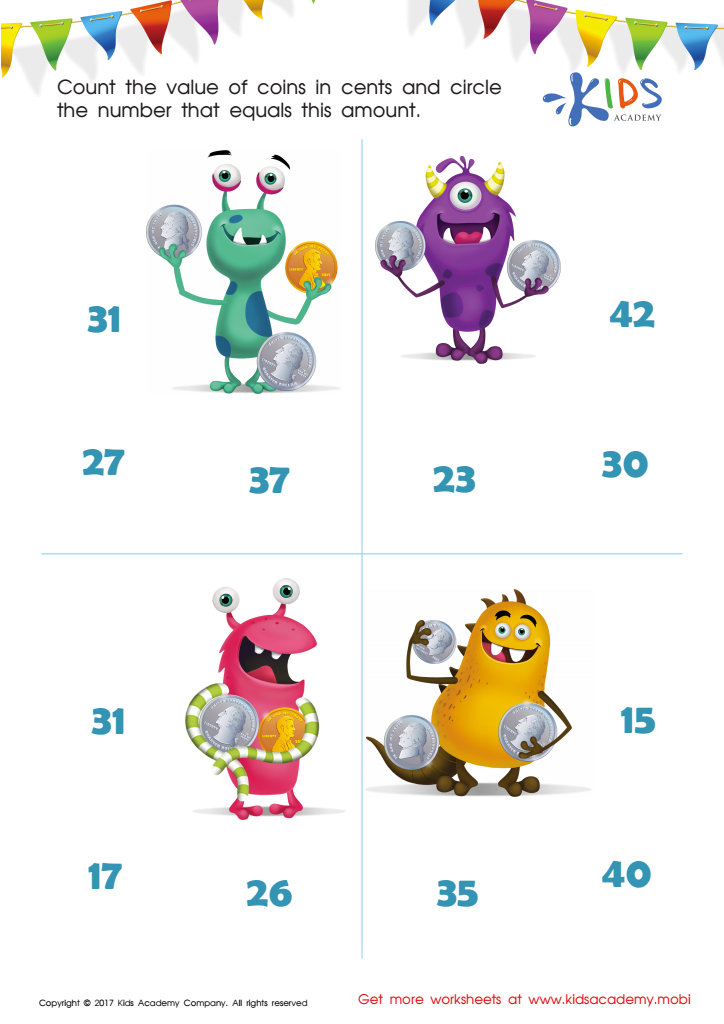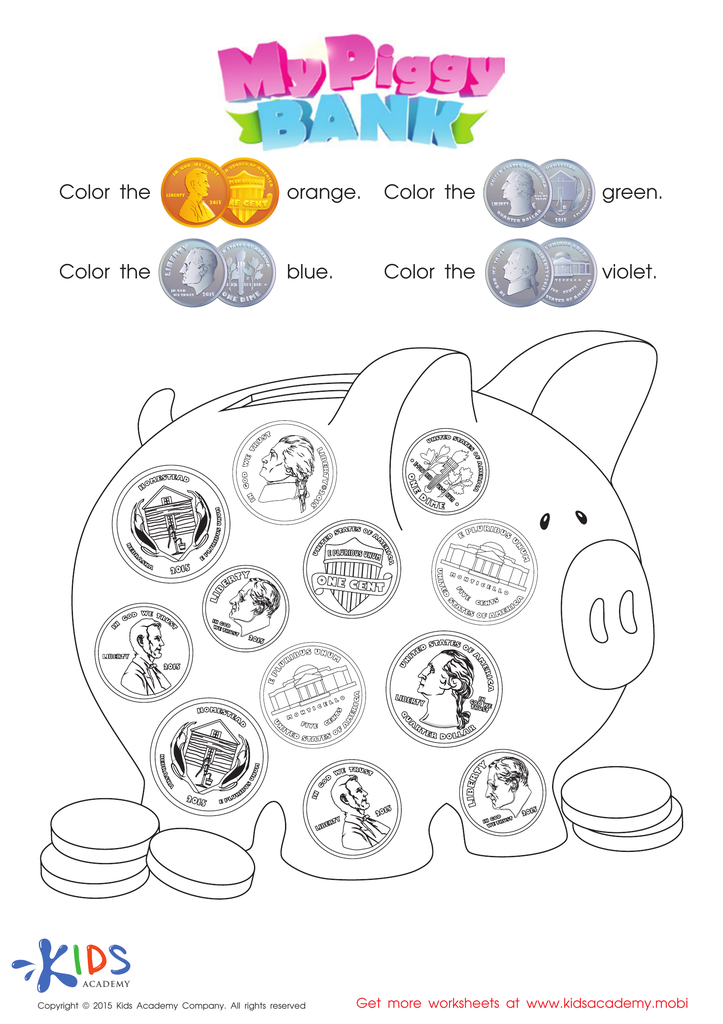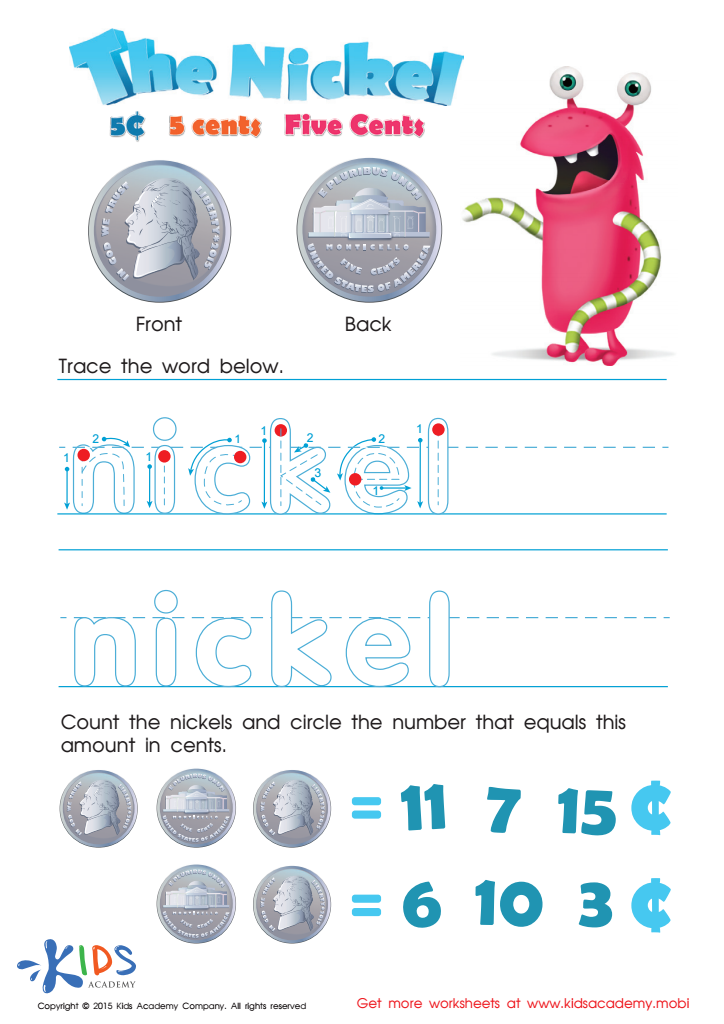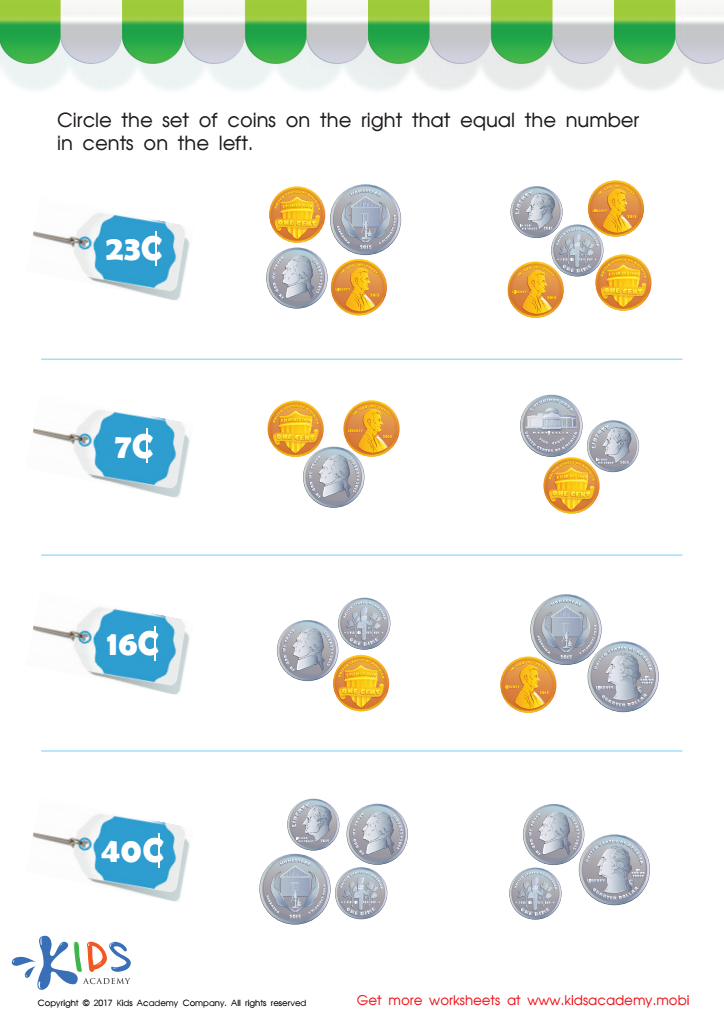Financial literacy Math Worksheets for Ages 3-9
4 filtered results
-
From - To
Explore our engaging Financial Literacy Math Worksheets designed for children aged 3-9! These specially crafted resources aim to introduce young learners to essential financial concepts through fun and interactive activities. Our worksheets cover topics like basic counting, simple budgeting, and identifying coins, fostering crucial skills that promote financial awareness. Ideal for classrooms or home learning, these worksheets combine playful learning with practical math exercises, ensuring a balanced approach to education. Build a strong foundation in financial literacy while making math enjoyable! Join us in empowering your child with the skills to understand money management early on. Download your worksheets today!


How Many Coins Money Worksheet


Recognizing Money Money Worksheet


Five Cents or the Nickel Money Worksheet


Picking the Coins You Need Money Worksheet
Financial literacy is a crucial skill that lays the foundation for responsible money management later in life. For children ages 3 to 9, integrating financial literacy into their math education has significant benefits.
Firstly, early exposure helps children understand basic concepts such as counting, saving, and spending, setting the stage for more complex financial ideas later on. Simple activities like using play money or counting coins can transform abstract math lessons into engaging, practical experiences that highlight everyday financial situations.
Secondly, learning these skills promotes critical thinking and problem-solving. When children solve real-life math problems involving money, they learn to make informed decisions about budgeting, saving, and understanding value. This knowledge cultivates confidence in managing finances, helping them navigate their financial futures.
Additionally, financial literacy in early education fosters a culture of discussions around money within families. When parents and teachers engage in these conversations, it demystifies money and encourages children to develop healthy attitudes toward it, including understanding the importance of delayed gratification and recognizing the consequences of spending.
In summary, prioritizing financial literacy math for children ages 3 to 9 equips them with essential life skills, promotes critical thinking, and encourages open discussions about money, ultimately shaping responsible adults.

 Assign to My Students
Assign to My Students






.jpg)












